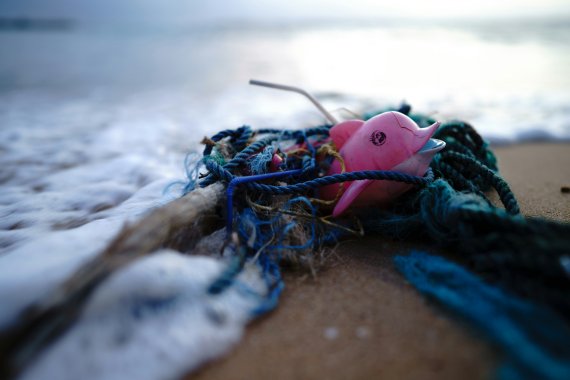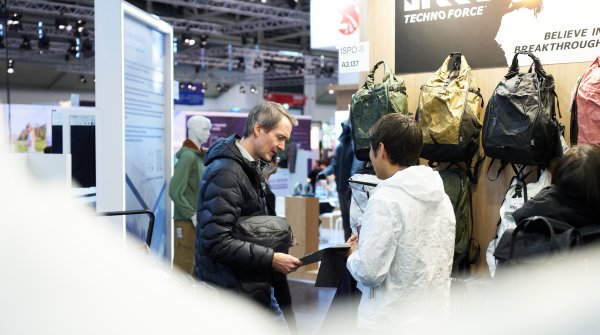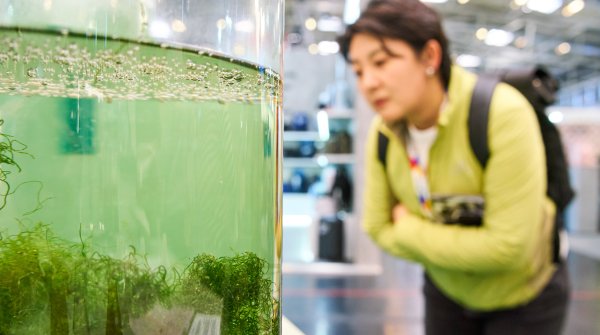When an economy coughs, its innovative strength also weakens. But this is precisely what is needed in the transformation that Germany is undergoing in many areas. Start-ups can help deliver innovative and scalable solutions to pressing problems. But times are uncertain, and the young company sector is feeling the effects. Last year, 2,489 start-ups were founded in Germany - almost 5% fewer than in 2022 and therefore on a par with the pre-coronavirus year of 2019. Not only is start-up momentum slowing, so is success. Last year, more start-ups went bust in Germany than ever before. A total of 297 start-ups filed for insolvency. Compared to 2022, this was a whopping 65% increase.
What all start-ups have in common is the courage to pursue and launch an innovative idea without letting the fear of failure slow them down. Even if there are good and less good ideas, in the end failure is not necessarily due to the idea that nobody wants. Sometimes it is simply a lack of visibility. After all, there are many hurdles that start-ups have to overcome: Product development, securing liquidity, marketing, monitoring, corporate identity, recruiting, sales, IT - all at once, all at the same time. This hurdle race goes far beyond the usual route. It's easy to lose focus and fall off track. Social media is a good indicator of this, because here too, the protagonists with the greatest reach are not always the ones with the strongest content. But visibility can also be an indicator of success.
In the central economic model of the future, the circular economy, there has been a new aggregator for a few months now that can help to bring young companies out of obscurity: "bgreen leaders" is the name of the business network that was launched four months ago by Circulaze in cooperation with the Munich trade show. Natascha Zeljko, co-founder of "bgreen leaders", explains the power that the network offers: "It is a vibrant ecosystem of like-minded visionaries driven by innovation, shared best practices, cutting-edge knowledge and connections for collaboration." Of course, the "bgreen leaders" are not just a gathering place for young companies. It is much more than that, because as the name implies, the network also includes established industry giants, corporates, investors, experts, ambassadors and venture capitalists. All sides should benefit. "The start-ups need visibility and new customers. The professionals, i.e. the large companies in our network, are primarily interested in gaining an overview of the market," explains Natascha Zeljko. Her main task is to curate a year-round program with online and offline formats for the members.
The webinars are a core element of the network. With "Sustainability Reporting on CSRD and ESRS" on 08.10 and "eXchange: Circular Design" on 10.10, two informative programs are on the agenda. And at ISPO Munich 2024 in December, bgreen leaders will also inspire with several program items, so: stay tuned!
Another very popular format is the "bgreen leaders" dinner, which is held four times a year, always in a different major city. Once a year, the most promising circular economy start-ups with high potential are identified by a high-caliber jury. The best are honored at the Circulaze Award Night. This is part of the Circulaze Summit, which takes place this year on November 5 and 6 in Munich. A conference with influential keynotes, panel discussions, workshops and lively networking. This is where the most important players in the circular economy come together. A gathering place for innovation and shared growth. After all, the challenges we face in dealing with resources and the increasingly visible climate change are huge. Doing without more would be the real order of the day, but this is difficult to implement in a globally interconnected society with ingrained patterns of behavior. This is precisely why we need innovators who think differently and take on the transformation in some areas.
One person who does this is start-up entrepreneur Christian Schiller from Cirplus: "A network like bgreen leaders enables exchange with like-minded people with a passion for action. After all, we don't have a knowledge problem, we have an implementation problem. bgreen leaders helps to drive forward effective solutions by learning from each other and creating synergies between the pushed solutions." Cirplus is a trading platform for used plastic. Schiller and his Hamburg-based team have set themselves the task of counteracting the 15 million tons of plastic that end up in the sea every year. "The circular economy is the answer to the overconsumption of our planet's finite resources. Its implementation requires a rethink from all of us, in all areas of life," warns Schiller.

The spectrum of "bgreen leaders" from the circular economy is diverse. Food, mobility, fashion and textiles are represented, as are electronics and consumer goods. Natascha Zeljko believes that this mix is absolutely necessary in her network: "The different perspectives on things are important. It's about staying in touch, learning from each other, supporting each other, but also looking at things critically in a safe space. This requires different players from different areas."
Of course, political support is also needed. However, the circular economy lacks the will to make decisions and the necessary speed. That's why networks like "bgreen leaders" are so important for the transformation. Only one voice is quiet, many together make noise. This is also the view of Natascha Zeljko, who is pursuing a vision with bgreen leaders. "We want to become the Davos for the circular economy." If, in the end, just one less start-up goes bust because it has become visible thanks to the "bgreen leaders" community and an innovative idea is seen and supported, then all the efforts of Messe München and Circulaze will have paid off.
- ISPO awards
- Mountain sports
- Bike
- Design
- Retail
- Fitness
- Health
- ISPO Job Market
- ISPO Munich
- ISPO Shanghai
- Running
- Brands
- Sustainability
- Olympia
- OutDoor
- Promotion
- Sports Business
- ISPO Textrends
- Triathlon
- Water sports
- Winter sports
- eSports
- SportsTech
- OutDoor by ISPO
- Heroes
- Transformation
- Sport Fashion
- Urban Culture
- Challenges of a CEO
- Trade fairs
- Sports
- Find the Balance
- Product reviews
- Newsletter Exclusive Area
- Magazine







